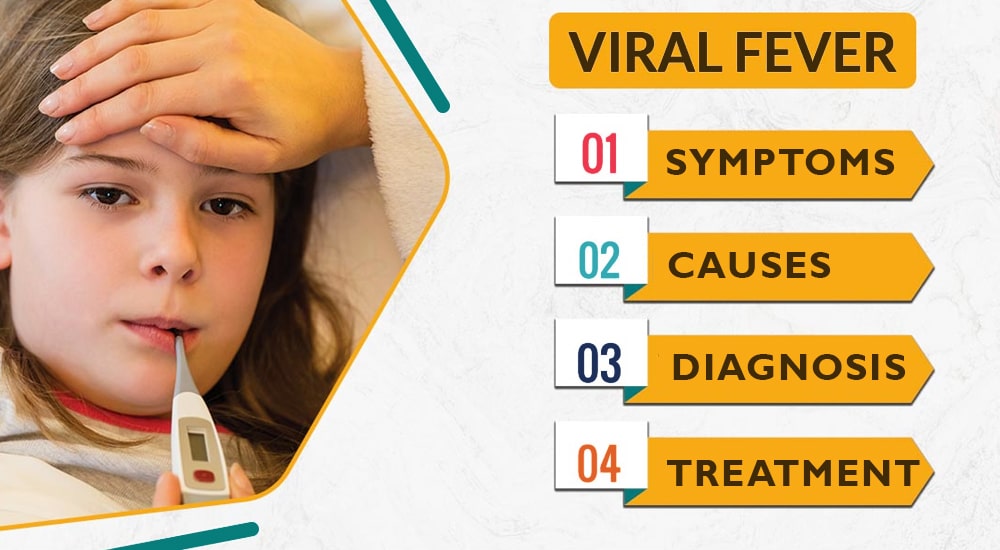
The Monsoon season comes with a range of illnesses, and one of the most common illnesses among them is viral fever. This fever causes many discomforting symptoms, such as high-grade fever, severe headache and body aches. Viral fevers are caused by various viruses that cause influenza, enteroviruses, dengue and malaria. This article explains viral fever's symptoms, causes, diagnosis and treatment.
What is viral fever?
Viral fever is a term used to specify a group of infections caused by viruses. Viral fever is not a disease itself, it is an immune response of our body to fight against foreign invaders like bacteria, viruses or pathogens. Dissimilar bacterial infections, which are treated with antibiotics, viral fevers require proper relief management.
What are the symptoms of viral fever?
Viral fever affects people of all ages, which is why it is essential to have sound knowledge about the symptoms of viral fever. The common symptoms of viral fever include:
All these symptoms generally last for a few days.
What causes viral fever?
Knowing the causes of viral fever can help you take necessary precautionary measures. Various bacteria or viruses cause viral fevers. These viruses multiply in the cells and infect the body. A fever is the result of your immune system fighting off the virus. There are various ways in which you can contract a virus, such as:
How is viral fever diagnosed?
Healthcare providers diagnose a viral fever or infection by certain diagnostic tests. Your doctor will ask you about the symptoms and recommend tests to determine the virus. Depending on the symptoms, your doctor may suggest a blood test, swab test and respiratory sample.
How are viral fevers treated?
Generally, viral fevers do not require specific medical treatments. Specific medical treatments are available for only a few viral fevers. Common treatments for viral fevers include:
Viral fever is the term to describe a fever caused by a viral infection, such as influenza or dengue fever. Although viral fevers usually ease away on their own, some may require immediate medical treatment.